 A bachelors, masters, or PhD is viewed as a ticket towards a satisfying and stable career and becoming a well-rounded citizen. Certainly college graduates make a lot more money than those without that degree. Yet an increasing number of articles and blogs are starting to question whether “College for all” and “You should go to graduate school” are really good mottos for our society.
A bachelors, masters, or PhD is viewed as a ticket towards a satisfying and stable career and becoming a well-rounded citizen. Certainly college graduates make a lot more money than those without that degree. Yet an increasing number of articles and blogs are starting to question whether “College for all” and “You should go to graduate school” are really good mottos for our society.
Lot’s of students who go to college now are not prepared, not really interested, and don’t graduate. Those students end up with tuition debt but don’t necessarily earn more than their friends who got only a high school degree or an occupational certificate like electrician or dental hygienist. Such observations are driving a number of high-profile articles that question whether we should really be pushing all our kids to go to college. It’s a sentiment that’s been growing over the past few years and although I don’t like that it verges on giving up on a lot of students, I’m starting to be convinced the view has merit. Many of the skills we teach in college (and high school) nowadays are only useful for a select group of jobs, and the range is shrinking as standardized testing and large class sizes narrow the skills being taught.
Countering this is the move in college science teaching towards emphasizing thinking skills, such as SimBio does with our virtual labs. But even at the graduate level, where one would expect such broader thinking skills to predominate, a recent set of blog commentary here points out the learning is often quite narrow. In many biomedical labs, for instance, PhD students perfect techniques of dissection, microscopy, working with specialized instruments, and other skills that really don’t apply outside a narrow band of research for which there are less and less jobs per qualified applicant. And although I am proud of our own virtual labs for teaching students how to discover fundamental biological concepts and ask and answer questions for themselves, it’s hard to say whether even those broader thinking skills apply to large swathes of life. I’ve gotten pretty good (well, not awful) at fixing the plumbing on my boat (not through any innate desire to learn this, let me assure you). Has my training as a scientist helped me there? Or is it a completely separate sphere of learning that I’ve had to pick up? I like to think my research background lowered my plumbing learning curve, but I’m not honestly sure.
So I’m starting to appreciate the line of thinking that says some students should not be pushed towards a standard college degree, and there should be more emphasis given to other possible career paths. Nevertheless, I’m still not ready to give up on trying to offer all kids the opportunity for a more general education. We just have to broaden what we mean by general education to include a more diverse set of skills and learning styles. Much of the work in the biology education community is aimed at doing just that – the aforementioned shift towards inquiry learning and thinking skills, incorporating more writing, presenting, and collaborative projects, offering early research experiences which allow students to tinker hands-on, and so on. At the graduate and postdoc level, there is a growing realization that classes and opportunities to learn to teach are important, as are thinking early about possible careers other than becoming a clone of your advisor. All of these moves still won’t help someone become a plumber, but they do apply to a much broader range of jobs, and life, than simply remembering the stages of mitosis.
In this context, I can’t help but mention a project from my colleagues at MIT who have just released a new science game for middle-schoolers. It’s called Vanished. It’s running for 8 weeks, from beginning of April through the end of May. It’s a big sciencey collaborative puzzle that thousands of kids across the country are working together to solve (involving lots of those skills and motivation that’s missing from our traditional science curriculum). If you have a middle school kid in your life who you want to experience a different science education possibility, have them check it out.







